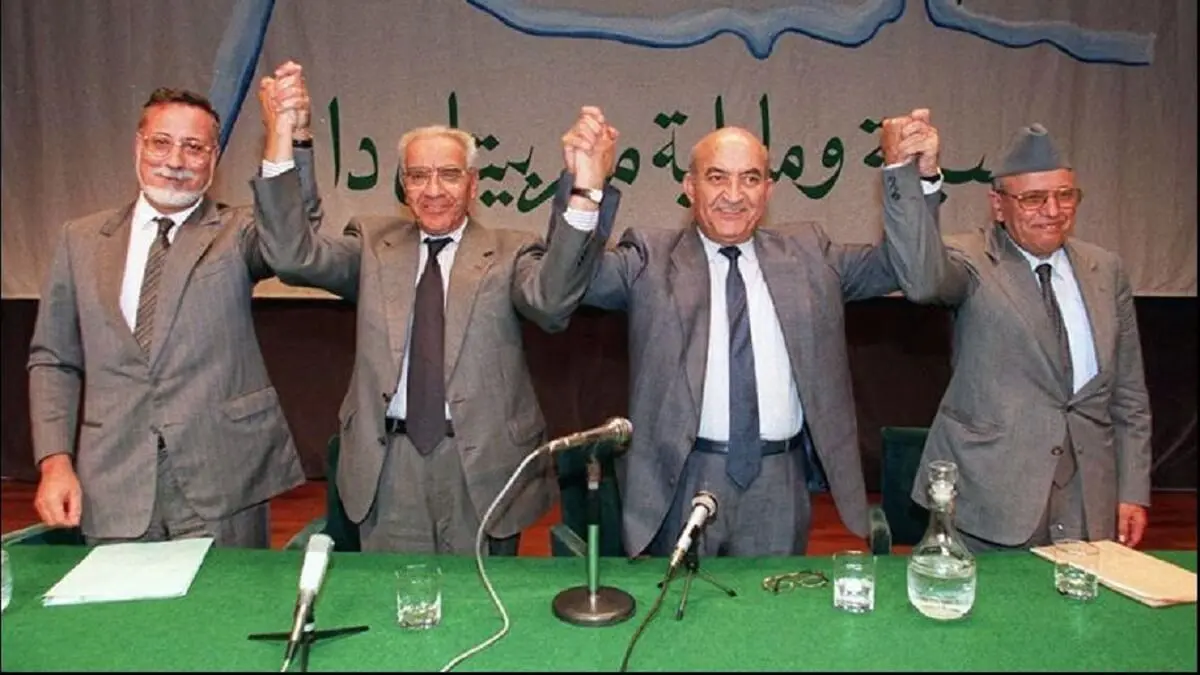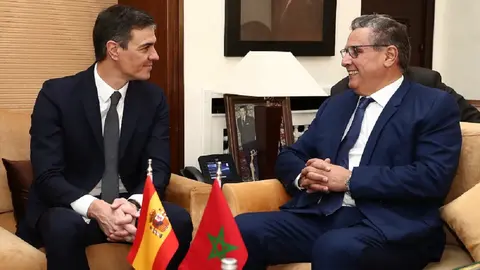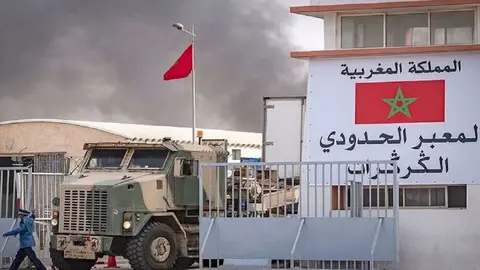Mohammed Bensaid Ait Idder, the last leader of Morocco's National Liberation Army

I first met Bensaid Ait Idder in the 1990s in Rabat, when, together with Abderrahman Yussufi, Mohammed Bucetta and Ali Yata, they set up a coalition of democratic opposition parties to King Hassan II, called "Kutla". When at the end of the decade and knowing that his end was near, King Hassan II appointed the socialist Abderrahman Yussufi to head the government, his Kutla allies, the communist Ali Yata and the Isticlalian Mohammed Bucetta, agreed to join the government coalition. Bensaid Ait Idder, however, remained intransigent in his radical positions. The leader of the Moroccan National Liberation Army died on Tuesday in Casablanca.
In an interview I conducted with the former head of the Southern Liberation Army, Mohammed Bensaid Ait Idder, he told me about the odyssey of the formation of the liberation army in the Saharan region, which he himself led between 1955 and 1958, and which was later partly integrated into the Royal Armed Forces (FAR). "Among the active members of the Southern Liberation Army were more than 70 Saharawis, some of them veterans of the resistance struggle against the Spanish occupation, and many other young people, some of them students from Casablanca, Marrakech and Rabat". Among them, according to Bensaid Ait Idder, there were relatives of the later founder of the Polisario Front, El Uali Mustafa Sayed, of political positions close to the Moroccan Communist Party, as well as the father of the Polisario leader for 40 years, Mohamed Abdelaziz, who died in Agadir in October 2017, Khalili Mohamed El Bechir Erguibi.
The armed anti-colonial resistance movement in southern Morocco suffered a disastrous experience. Not only did it have to face the joint military onslaught of the Spanish and French armies, but it was subjected to brutal repression by the newly created Royal Armed Forces, with its star pillar general Mohammed Oufkir, the aide-de-camp of Sultan Mohammed V, as well as by the police forces of the Ministry of the Interior, led by Mohamed Laghzaoui.
The non-recognition of the liberating role played by the Southern Liberation Army and the contingent of Saharawis from the former Spanish provinces disenchanted many Saharawi militiamen, who gradually distanced themselves from the liberation dream led by Mohamed Bensaid Ait Idder.
However, throughout his militant life as an ardent nationalist and defender of Morocco's independence from its former colonial metropolises, Paris and Madrid, Bensaid Ait Idder wasted no opportunity to defend two, in his view, transcendental objectives: the unity of the Maghreb and the defence of Morocco's territorial integrity, from the Rif to the sands of the Sahara, from Tangiers to La Güera.
Its armed actions against the Spanish army in the Sahara and against the French army, which supported the former Spanish colony of the Sahara from Mauritania, were part of the anti-colonial resistance. Meanwhile, on a purely internal Moroccan level, the former head of the Southern Liberation Army became known as "the opponent of the three kings, Mohammed V, Hassan II and Mohammed VI", as the Moroccan history magazine "Zaamane" described him. However, the last of the three rulers, Mohammed VI, awarded him a medal of the Alaouite Order, the highest civilian distinction, in 2015.
In 2010, Mohammed Bensaid Ait Idder was present in Madrid at the burial in the Muslim cemetery of Griñón of the architect of Maghreb independence, the Tunisian Hafid Ibrahim, who throughout his life and in particular during his exile in Madrid as an opponent of Tunisian President Habib Bourguiba after the Second World War, promoted and financed the anti-colonial armed struggle of the Algerian National Liberation Army and the Moroccan Liberation Army. Bensaid Ait Idder was present at his burial, along with former Moroccan Prime Minister Abderrahman Yussufi, the leader of the Moroccan resistance in the north, Mohamed Ghazi, the Tunisian ambassador and the political counsellor of the Moroccan Embassy, Boughaleb el Attar.
Shortly before, I met Hafid Ibrahim at his home in Somosaguas, where he received us together with the Algerian resistance fighter Mohammed Guenaneche, who like the Tunisian was a member of the "North African Star" founded in the 20s of the last century by Messali Hadj, a meeting that took place thanks to the mediation of the then Tunisian ambassador to Spain, Habib Mansour.
Curiously, Bensaid Ait Idder, who fought against Spain's colonisation of the Sahara, acknowledged that it was Spain itself in the 40s, 50s and 60s of the last century that protected Hafid Ibrahim's anti-colonial activities, even going so far as to dismantle an assassination attempt on the Maghreb opposition leader.
One of his last militant acts was for Bensaid Ait Idder to travel to Algiers in December 2015 to attend the end of the mourning for the death of Hocine Ait Ahmed, creator and leader of the Front of Socialist Forces and one of the leaders of the Liberation War in Algeria. Bensaid Ait Idder then proposed the organisation of a major meeting between the Maghreb countries involved in the Sahara crisis to discuss a solution to the conflict that is poisoning relations in the region, especially between Algeria and Morocco. Bensaid included among the participants three members of the Polisario Front leadership. Neither Algiers nor the Polisario took a position on Bensaid Ait Idder's proposal, which was put on hold. It was undoubtedly the most weighty and authoritative proposal made at the level of civil society, political parties and militant organisations in the Maghreb, to try to resolve the Sahara conflict.



